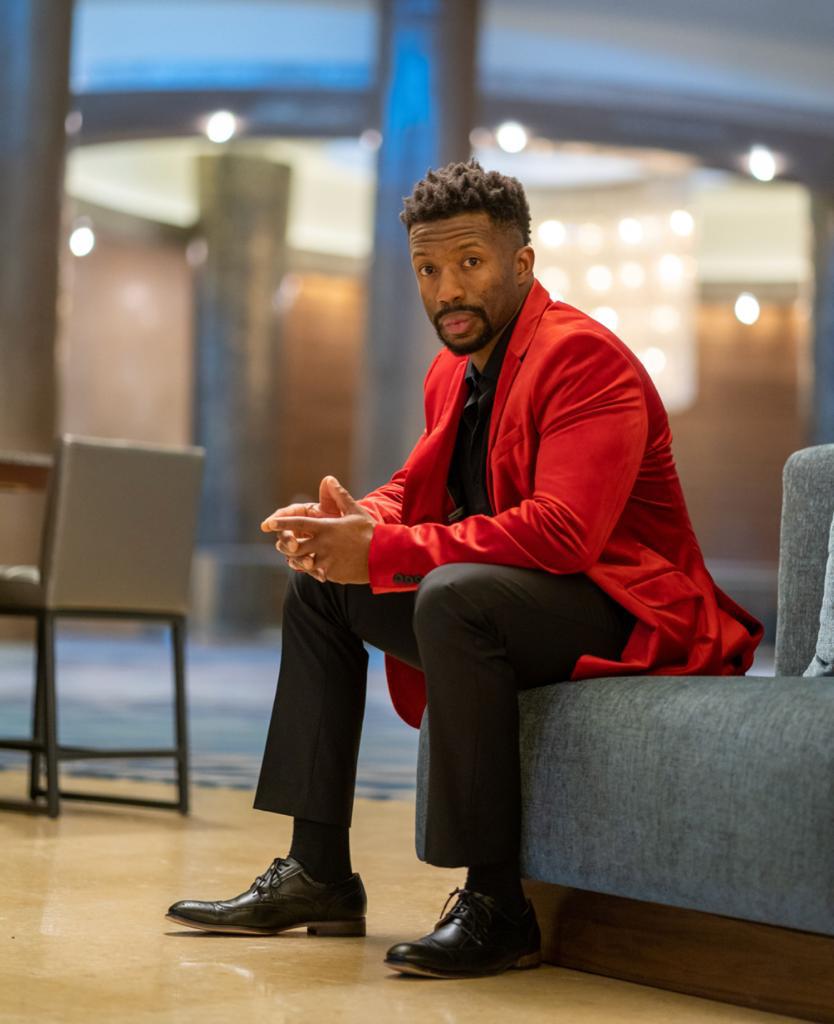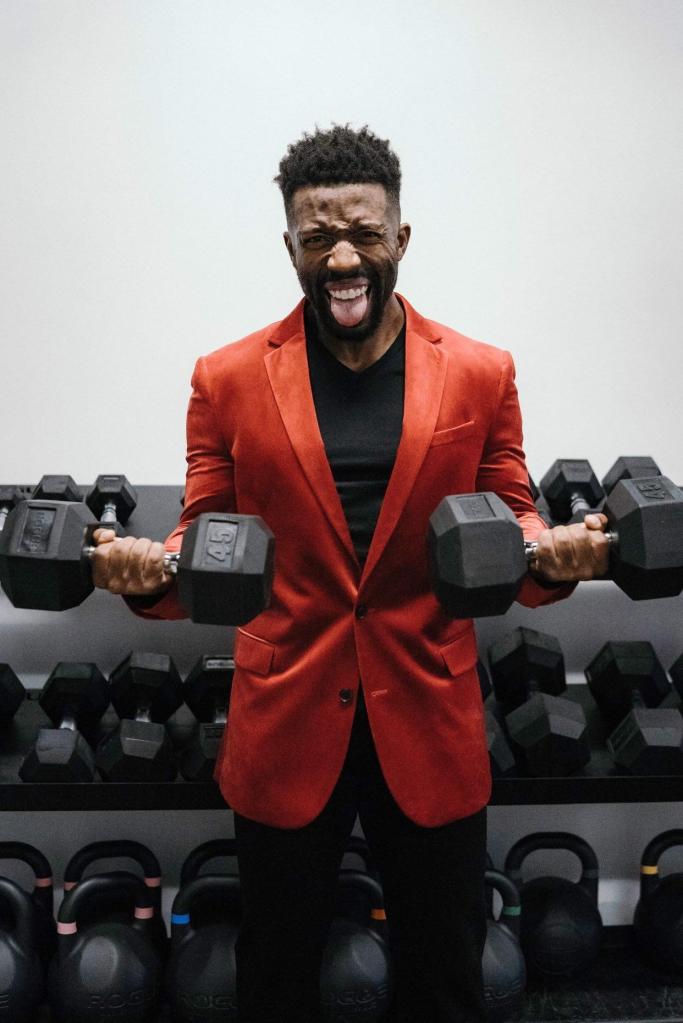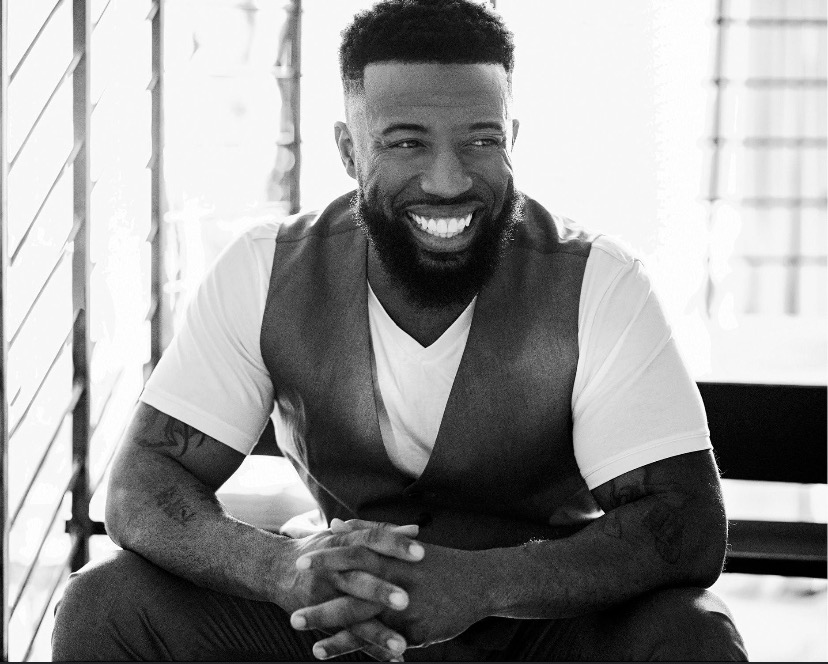
Army Veteran PJ Cowan served 8.5 years in the US Army. Not only was he deployed twice, he suffered a serious leg and head injury that ultimately was the reason he had to retire from the Military. He was able to spend two years doing Diplomatic Security work after retiring, but in the long run with two small children at home he realized it was time to focus on his family and decided he would stay home in the USA and begin building his own business in health and fitness.
In 2014 PJ opened Soulja Fit Lifestyle, training those who wanted a lifestyle change and looking for transformation. While training others, he competed in over 8 fitness shows and earned his PRO card in 2015.During this time, he was battling a not so private “war” with his now ex wife.
Fast forward to 2023, PJ is now ready to tell his story of what it’s like dealing with a narcissist, a liar, a manipulator. How he has overcome and is still overcoming years of lies and deceit and how it has affected him and his two teenage children. PJ is part of the 50% of married couples who have divorced in the United States. He unfortunately is also a part of the harsh reality that co-parenting isn’t always easy.
PJ started his podcast RAW and REAL VET TALK, to discuss the hard topics that so many are afraid to discuss, from being Military and the transition into Civilian Life, Substance Abuse, Alcoholism, Post Divorce and much more. The one thing that keeps coming up in all these topics is what people are going through Mentally. The scary part in all this, and especially with PJ and what he has gone through and is still going through, is how many Men do not speak up, especially on the Mental health side. It’s not enough that coming back from the Military he has suffered with PTSD and Anxiety, but add this post divorce trauma to it and what he has emotionally been through is unfair … all because he is a man.
We had the opportunity of sitting down with PJ to discuss his transition from military life to becoming a civilian, mental health and his new podcast:
PJ, thank you for your service. Can you share your experience transitioning from military life to civilian life?
Thank you for having me. Transitioning back into civilian life isn’t easy. For those of us fortunate enough to return home, it doesn’t simply erase what we’ve experienced. We witness death, severe injuries, and hear bombs and rifles. It’s a world that outsiders may not comprehend unless they’re part of this community.
It’s a readjustment, accompanied by many challenging days. However, surrounding yourself with good people and discovering support groups and activities you enjoy is crucial. It takes time and effort.
Can you elaborate on your personal experience with mental health challenges, both during your military service and post-divorce?
I always tell people that I’ve been through war, not just in the military. I’m an open book and often say, “My PTSD, I feel, is worse from dealing with my divorce than the military.”
Yes, there’s a lot to deal with when coming home from the military. Migraines, a severe leg injury, and flashbacks are all part of the PTSD and anxiety I personally have faced. The day-to-day struggles persist as a veteran, but I had no idea that coming home would introduce a “different kind of war.”
Navigating a traumatic divorce with a narcissistic person, full of lies and deceit, only added to my PTSD and honestly made it worse. It’s disheartening to fight for your country and hear “thank you for your service,” yet the same government wouldn’t assist me in a custody battle.
I’ve witnessed firsthand how one parent can spread lies and hate and get away with it because the government supports a narrative, ultimately benefiting lawyers financially. At this point, it’s not about the well-being of the kids or family; it’s just about financial gain.
Why do you think there is stigma, especially among men, when it comes to speaking up about mental health issues?
I compare it to being in the infantry in the army: “Suck it up, drink water, drive on, and put a Band-Aid on that.”
It’s the same thing in the civilian world. If you show emotions or talk about it, you are considered weak. In battle, you can’t show weakness, and in the real world, you aren’t seen as a “man” if you aren’t tough. Unfortunately, it’s a label that men seem to have been given, and it’s causing a lot of harm to men mentally, physically, and emotionally.
Opening Soulja Fit Lifestyle is a significant step after leaving the military. How did your Military training contribute to your approach in building your own business in health and fitness?
Before the military, I was active, always involved in fitness, particularly playing sports. The military elevated my fitness to the next level, providing discipline like no other. It taught me how to be strong both physically and mentally. When I came out, it felt like a no-brainer that this was not only something I wanted to do but something I NEEDED to do!
PJ, your story involves a challenging divorce and navigating co-parenting. Can you share some insights into the difficulties you face and the emotional toll it took on your children?
OMG, this could be a book! How long do we have? LOL.
Each of my two kids would honestly have their chapters. They each have their traumas and pain from watching their parents unable to co-parent. The truth is, my tribe lives with me, and each day brings a different story. It doesn’t get easier as they get older; it just gets a bit better every day.
For me, the hardest thing was watching my kids suffer. In return, it made me endure more trauma because I was tired of seeing my babies suffering.
At the end of the day, no parent wants to see their kids upset. They are my priority. Unfortunately, no matter how hard I tried with co-parenting, I always faced pushback.
What advice would you give to other divorced dads who might be going through similar struggles?
Whatever you do, DON’T GIVE UP. Fight for your kids. Find a good support system, know the law, know your rights, ask questions, do the research, but never give up.
The concept behind your podcast is intriguing. What inspired you to launch “Raw and real Vet Talk: and what topics do you hope to address through the podcast?
I have A LOT to say about many “Raw and Real Topics” that I feel are important to discuss. Too many people are afraid to have hard conversations, and I felt like this was a place where not only could we have open dialogue and a little debate, but it’s also a way of letting people know they aren’t alone. From single dads, divorce, mental health, addiction, politics, and more, I will only speak on things that I have personally gone through.
What I have enjoyed so far is having guests on, maybe someone we saw on TV, in the movies, or an author—just anyone from the entertainment industry with a story and a past that no one really knows, or they h ave never been given the opportunity to share their journey.
If I can help even one person who is having a hard time just by them listening to my podcast, that is a reward in itself for me.
How do you think sharing your personal stories, especially on difficult topics, can contribute to healing and awareness?
The simplest way to put this is, I don’t want to see people make the same mistakes I made. I want my journey to help save people from thinking there is no way out of tough situations. People need to realize there are a ton of resources out there, and help is available.
What changes would you like to see in the legal system to better support fathers in custody battles?
ACTION, NOT WORDS!!! If there is undeniable evidence that the father has done nothing wrong—lies, manipulation, fabrication, deceit—then all should be shut down and no longer dragged out. Why should the father suffer to get money into lawyers’ pockets?
Now, let me be clear. I don’t want to see any parent be treated wrong. If the mother is right and the father is wrong, I feel the same way. But we are discussing dads right now and the system and how difficult it is for fathers to really be seen and heard.
There must be consequences when a parent is being dragged through the mud and their name ruined because the other parent wants their way.
So, yes, I want to see actions, not words, not broken promises, not a parent going broke when it’s as clear as day they are right.
Your journey involves a significant focus on self-love and doing what makes you happy. How did you learn to prioritize your well-being and what advice do you have for others in finding balance and happiness?
I learned how to block everything out and put myself first. I took care of my body by hitting the weights, working out, and eating healthy. I put my all into my kids. At the same time, I am human, and I have bad days, but I don’t allow one bad day to continue for days.
To find balance and happiness, you must really know what you want for yourself. You have to find the things that make you want to be better. A job, working out, a better meal plan—it doesn’t have to be complicated. Surround yourself with people who want to see you do better. Just rid yourself of the negativity in your life and put yourself first. It’s not selfish; it’s growth.
Take a moment and watch his first few episodes: https://www.youtube.com/@rawandrealvetalk


